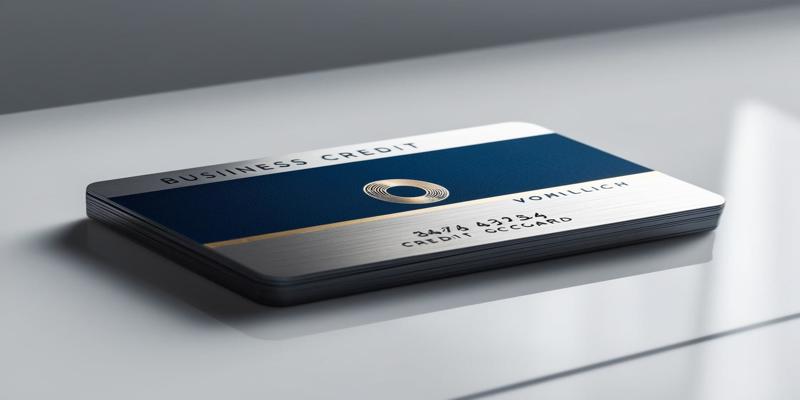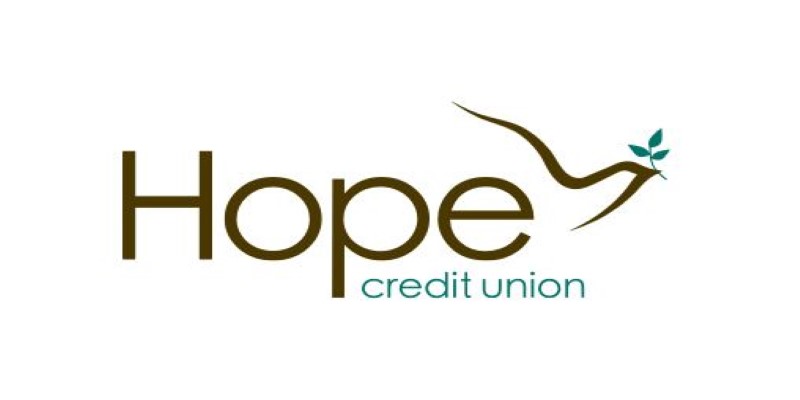What Is A Business Credit Card And How Do They Work?
Dec 09, 2024 By Elva Flynn
As an entrepreneur, you always look for ways to manage expenses and streamline financial operations. A business credit card could be an excellent addition to your armory, with advantages designed just for your company. But what exactly does a business credit card entail, and how is it different from personal cards? We'll delve into the nitty-gritty of business credit cards in this comprehensive guide: exactly how they function, their advantages, and maybe some disadvantages.
What is a Business Credit Card?
 A business credit card is a financial tool for the firm to manage its expenses, separate business from personal, and build business credit. Similar to personal credit cards, they share the same concept but have features that accommodate the business's specific needs.
A business credit card is a financial tool for the firm to manage its expenses, separate business from personal, and build business credit. Similar to personal credit cards, they share the same concept but have features that accommodate the business's specific needs.
Key Features
Business credit cards generally have larger limits than personal credit cards and represent businesses' perhaps larger expenditure needs. Most offer reward programs with benefits focused on common business expenses such as office supplies, travel, or advertising. Many of these cards also include various tools for expense tracking, and the ability to issue additional cards for employees makes it easier to track expenses.
Eligibility and Application
Although requirements vary among issuers, most business credit cards are open to anyone from a sole proprietorship to the largest corporations. In the application process, you will usually be requested to provide information about your business, like the legal form of your business, the revenue it generates, and the years the company has been in operation. Sometimes, even when you apply under your business, your personal credit history may be taken into consideration.
Liability and Credit Reporting
One important thing to consider when dealing with business credit cards is liability. The business owner is personally responsible for the card debt for many cards. This means that your personal and business credit scores could be affected if late payments are made. However, some issuers provide corporate cards with only company liability for big, well-established businesses.
How Business Credit Cards Work
Business credit cards work just like personal credit cards but are designed for company expenses. Learning how they work will help you reap their benefits and avoid possible drawbacks.
Application and Approval Process
Issuers commonly consider your personal and business credit history when applying for a card. They'll also consider your business's income, how long it's been in operation, and what type of industry it's in. Some cards are personally guaranteed, meaning you are responsible for the debt if your business cannot pay.
Credit Limits and Spending
Business credit cards often come with higher credit limits than personal cards, which reflects companies' more significant financial needs. Of course, your actual limit will depend on your creditworthiness and business financials. Many cards will also let you set individual spending limits on employee cards to help you retain control over expenses.
Billing and Payment
Most business credit cards have a grace period of 21-25 days, during which you can pay your balance without paying interest. This can be highly helpful in managing cash flow. Others offer flexible payment options, allowing you to carry a balance on certain purchases while paying off others in full.
Rewards and Benefits
Many business credit cards offer rewards on everyday business expenses, such as office supplies, travel, or advertising. Most have sign-up bonuses, cashback, or points redeemable for travel or statement credit. Other benefits may involve travel insurance, purchase protection, and access to airport lounges.
Reporting and Integration
One important feature of business credit cards is the facility for integration into accounting software, which makes tracking expenses easier and helps with financial reporting. Most issuers provide detailed reports on spending, categorized expenses, and year-end summaries, which are worth their weight in gold regarding budgeting and tax preparation.
Pros of Business Credit Cards
 Business credit cards have many advantages, considerably benefiting your company's finances and growth. Let's delve into some of the primary benefits:
Business credit cards have many advantages, considerably benefiting your company's finances and growth. Let's delve into some of the primary benefits:
Separation of Personal and Business Expenses
One of the significant advantages of a business credit card is how easy it is to separate your personal and business expenses. This dramatically simplifies accounting and preparation for taxes. You'll have a clear record of business-related purchases that may become important during tax season or at an audit.
Building Business Credit
Using a business credit card responsibly builds your company's credit profile. A strong business credit score can open the door to better financing options in the future, such as loans with more favorable terms or higher credit limits. This could benefit startups and small businesses that must build their financial credentials.
Rewards and Perks
All the rewards programs offered through business credit cards are based on everyday business expenses. So, you earn cashback rewards for office supplies, travel miles for business trips, and points for taking out clients. Others include benefits like access to airport lounges, travel insurance, and purchase warranties. Over time, these rewards translate into cost savings for the business.
Expense Management Tools
Many business credit cards come with quite advanced expense tracking and reporting features. These enable you to track employee spending while categorizing expenses and creating reports. Such features surely smoothen your bookkeeping processes and add treasured insights into your company's spending habits for better financial decision-making.
Cons of Business Credit Cards
While using a business credit card has many benefits, there are also several possible drawbacks a business owner must seriously consider. Let's discuss some of the cons of using these financial tools.
Higher Interest Rates and Fees
One major disadvantage of business credit cards is that the borrowing rates on business cards tend to be higher than those on personal and business loans. These can add to significant costs should you carry a month-to-month balance. Then there are also annual fees for many business credit cards, which will dig into the profits, especially if your business is small or in its infancy.
Personal Liability Risks
Most business credit card agreements contain personal guarantee requirements, and you become liable for that particular debt if your business cannot pay. This erases individual and company account boundaries and may affect your property. Always read the fine print and understand your liability before applying for a credit card for business.
Lack of consumer protection
Under the Credit CARD Act of 2009, most business credit cards offer different consumer protections than personal credit cards. That means issuers can change interest rates, fees, and terms with little notice, making it challenging to manage your business finances well. Be prepared for potential changes that might suddenly impact your bottom line.
Overspending Temptation
With a business credit card, it's easy to overspend due to convenience and rewards. And when you have a very high credit limit, it is straightforward to justify personal purchases as "business expenses." This leads to debt accumulation that becomes tough to handle and may hurt your business in the long run.
Conclusion
In conclusion, a business credit card can be a potent financial tool for your company, provided one uses it strategically. By being aware of how these cards work, benefits, and potential drawbacks, you will be better positioned to decide whether one is right for your business. Remember to compare offers, read the fine print, and put robust policies in place for card usage.








